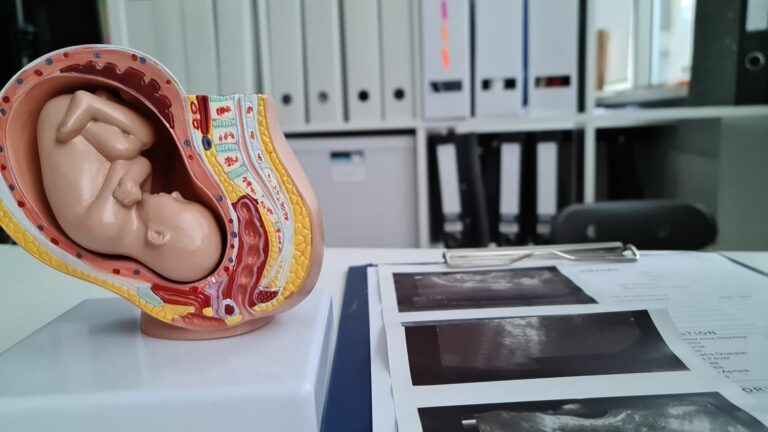
Experiencing repeated IVF failures can be an emotionally taxing and frustrating journey. When you’ve put your hopes and dreams into each cycle, only to face disappointment time and again, it’s natural to feel discouraged and even hopeless.
However, it’s essential to remember that recurrent IVF failure doesn’t mean the end of your fertility journey.
By exploring hidden causes, considering alternative treatment strategies, and seeking the right support, you can navigate this challenging path with resilience and renewed hope.
Key Takeaways
| Key Takeaway | Why It Matters | 🌟 Tip |
|---|---|---|
| 🔍 Investigate Hidden Causes | Look beyond standard tests to uncover potential issues related to immune factors, genetics, or uterine abnormalities. | Don’t settle for “normal” results – advocate for further exploration. |
| 🧪 Personalize Your Protocol | One size doesn’t fit all in IVF. Consider alternative protocols tailored to your unique needs and response to medications. | Be open to trying new approaches – your perfect protocol may be waiting to be discovered. |
| 🧘♀️ Prioritize Emotional Well-being | Recurrent IVF failure takes a toll. Seek counseling, join support groups, and practice self-care to navigate the emotional challenges. | Remember, you are not alone – surround yourself with understanding and compassion. |
| 🌈 Explore All Paths to Parenthood | If multiple attempts with your own eggs and sperm are unsuccessful, consider donor options or gestational surrogacy. | Keep an open mind – your path to parenthood may take an unexpected but beautiful turn. |
| 🩺 Find a Specialist | Seek a reproductive endocrinologist with expertise in recurrent implantation failure for a fresh perspective and innovative approaches. | Don’t be afraid to seek second opinions – your perfect doctor is out there. |
| 💪 Hold onto Hope | Remember, even the most challenging cases often have solutions. Stay informed, surround yourself with positivity, and never give up on your dreams. | Celebrate the small victories and take it one day at a time – your strength will carry you through. |
Investigating Hidden Causes: Beyond the Standard Tests
When you’ve had multiple failed IVF cycles despite “normal” test results, it’s time to delve deeper into potential underlying issues that may be impacting your success.
While standard tests are crucial, they may not always uncover the full picture. Here are three areas worth exploring further:
1. Immune System Factors
- Understanding the Connection: A well-regulated immune system is essential for a healthy pregnancy. Sometimes, an overactive immune response can interfere with implantation or lead to early miscarriage.
- Specialized Testing: If your doctor suspects immune issues, they may recommend specific blood tests to assess your immune function and how it interacts with pregnancy. These tests can identify factors like elevated natural killer cells or anti-phospholipid antibodies.
- Potential Treatments: If immune testing reveals abnormalities, your doctor may suggest therapies like intravenous immunoglobulin (IVIG), corticosteroids, or intralipids to help regulate your immune response.
Note: Immune testing and treatment for infertility is an evolving field. It’s crucial to discuss the pros and cons with your doctor and review the latest research before proceeding.
2. In-Depth Genetic Analysis
- Exploring Beyond PGT-A: While preimplantation genetic testing for aneuploidy (PGT-A) is commonly used to screen embryos for chromosomal abnormalities, more complex genetic issues may be at play in some cases of recurrent failure.
- Advanced Testing Options: Your doctor may recommend additional tests such as karyotyping for you and your partner to identify chromosomal rearrangements that may not be detected by PGT-A.
Other advanced embryo screening techniques like PGT-M (for specific genetic disorders) or PGT-SR (for structural rearrangements) may also be considered. - Interpreting Results: In-depth genetic testing can provide valuable insights into potential causes of implantation failure.
However, it’s essential to review the results carefully with your genetic counselor and fertility specialist to understand the implications for your specific situation.
3. Comprehensive Uterine Evaluation
- The Power of Hysteroscopy: If standard imaging tests like ultrasounds don’t reveal any uterine abnormalities, your doctor may suggest a hysteroscopy.
This minimally invasive procedure allows direct visualization of the uterine cavity using a thin, lighted scope. - Identifying Hidden Issues: Hysteroscopy can detect and often simultaneously correct problems like polyps, fibroids, or adhesions that may be impacting implantation success.
- Considering the Benefits: While not routinely recommended for everyone with recurrent IVF failure, discussing the potential value of a hysteroscopy with your doctor can be helpful, especially if other tests have been inconclusive.
Tailoring Your Treatment Approach: Thinking Outside the Box
When faced with repeated IVF failures despite apparently “normal” results, it’s essential to consider alternative treatment strategies that may improve your chances of success. Here are some approaches worth discussing with your doctor:
1. Personalizing Your IVF Protocol
- One Size Doesn’t Fit All: Every woman responds differently to IVF medications. If previous cycles yielded suboptimal results, adjusting the dosage, combination, or timing of your medications may lead to better egg and embryo quality.
- Considering Alternative Protocols: Talk to your doctor about options like the antagonist vs. agonist protocol, mini-IVF, or natural cycle IVF.
These approaches may be particularly beneficial if you’re sensitive to medications or at risk of ovarian hyperstimulation syndrome (OHSS).
2. Addressing Immune Concerns
- Exploring Immunomodulation: If immune testing suggests potential issues, your doctor may recommend therapies to regulate your immune response during IVF. These may include IVIG, corticosteroids, or intralipids.
- Weighing the Evidence: As immunomodulation for fertility is still an evolving field, it’s crucial to review the current research with your doctor and carefully consider the potential risks and benefits before proceeding.
3. Incorporating Holistic Support
- The Mind-Body Connection: While no conclusive evidence directly links complementary therapies to improved IVF outcomes, they can significantly impact your overall well-being and resilience during treatment.
- Acupuncture and Mind-Body Techniques: Consider working with an acupuncturist who specializes in fertility support.
Many clinics partner with qualified practitioners. Additionally, practices like meditation, yoga, or counseling can help you manage stress and cope with the emotional challenges of recurrent IVF failure.
4. Considering Third-Party Reproduction
- Exploring Other Paths to Parenthood: If multiple IVF attempts with your own eggs and sperm have been unsuccessful, using donor eggs, donor sperm, or gestational surrogacy may open new possibilities.
- Navigating Emotional Complexities: The decision to pursue third-party reproduction is deeply personal and often accompanied by a range of emotions. Seeking counseling to process these feelings and consider all aspects of this choice is essential.
Finding Specialized Expertise and Unwavering Support
Navigating recurrent IVF failure requires not only medical expertise but also a strong emotional support system. Here’s how to ensure you have the right team in your corner:
Seeking a Specialist in Recurrent IVF Failure
- The Value of a Fresh Perspective: While your current doctor may be highly skilled, sometimes a specialist with expertise in managing complex cases can provide new insights and approaches.
Consider seeking a reproductive endocrinologist who focuses on recurrent implantation failure or getting a second opinion from a clinic with a track record of success in similar situations.
Some cities to consider include Jamnagar, Siliguri, Nellore, Sangli-Miraj-Kupwad, Tirunelveli, Gaya, and Udaipur. - Asking the Right Questions: When consulting with specialists, come prepared with a list of questions about their experience with recurrent failure cases, success rates, and openness to exploring less common tests or personalized treatment strategies.
Prioritizing Emotional Well-being
- Acknowledging the Toll: Recurrent IVF failure can take a significant emotional toll. Make your mental health a top priority by seeking support systems to help you cope with the stress, disappointment, and uncertainty.
- Individual or Couples Counseling: Consider working with a therapist who specializes in infertility-related anxiety and depression. They can provide valuable tools and strategies to navigate this challenging time.
- Finding Your Tribe: Connecting with others who truly understand your journey can be incredibly healing.
Look for IVF support groups in your area, join online forums dedicated to recurrent IVF failure, and tap into the resources offered by fertility-focused organizations.
Remember, you are not alone in this journey. By arming yourself with knowledge, advocating for your needs, and leaning on a supportive network, you can find the strength to keep moving forward, one step at a time. 💜
Holding onto Hope: Your Journey Isn’t Over
Recurrent IVF failure can be a heartbreaking and isolating experience, but it doesn’t have to define your path to parenthood.
By taking a proactive approach, exploring hidden causes, considering alternative strategies, and surrounding yourself with the right support, you can navigate this journey with resilience and renewed hope.
As you continue on this path, remember:
- Advocate for yourself. Don’t hesitate to ask questions, seek second opinions, and explore less common testing and treatment options.
- Prioritize your emotional well-being. Seek out professional counseling, join support groups, and lean on loved ones who can offer understanding and compassion.
- Hold onto hope. Even the most challenging cases often have solutions waiting to be discovered. Stay informed, surround yourself with positivity, and never give up on your dream of building a family.
For more information and support, explore our resources on coping with IVF failure, finding joy beyond IVF, and connecting with online IVF communities.
No matter how difficult this journey may be, know that you have the strength within you to keep moving forward.
By taking it one day at a time, celebrating the small victories, and holding onto hope, you can find the path that leads to your ultimate goal of parenthood. 🌈





